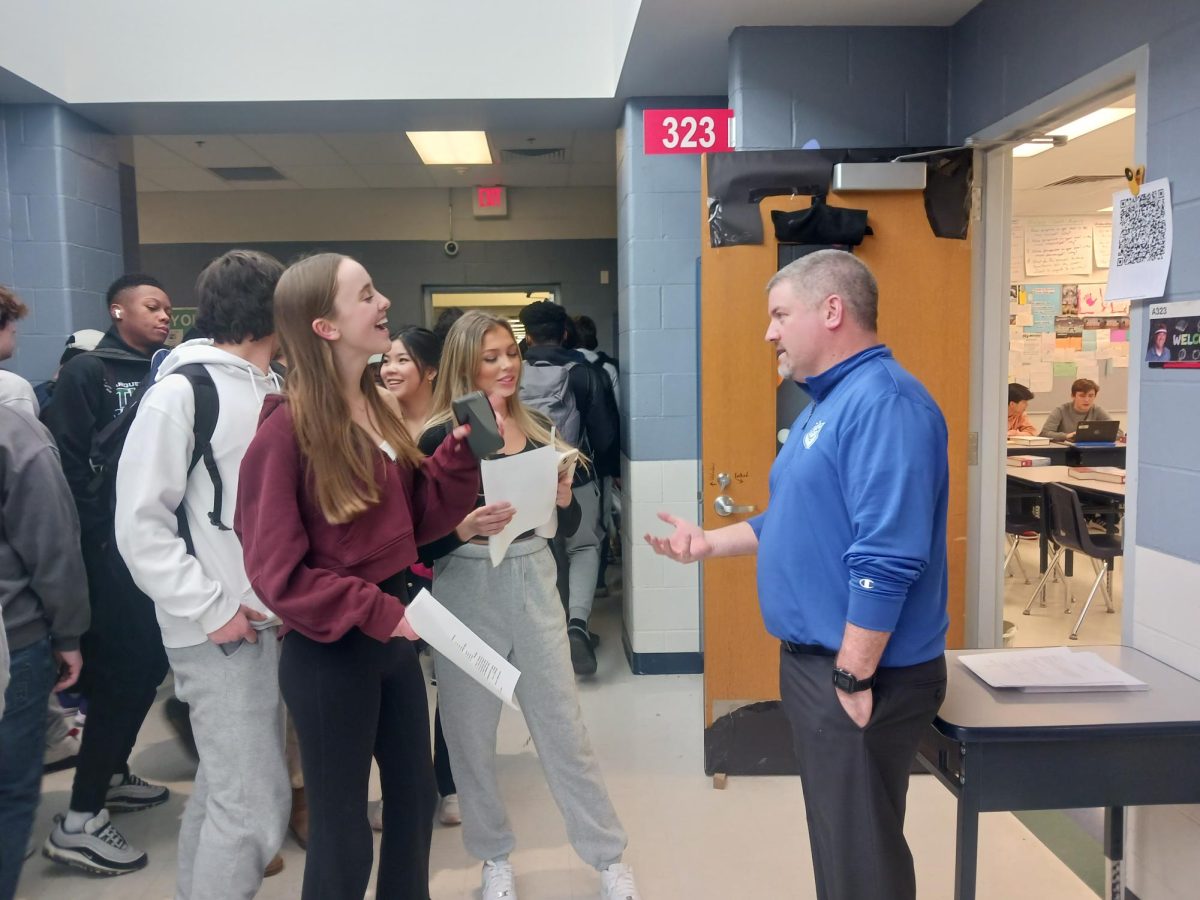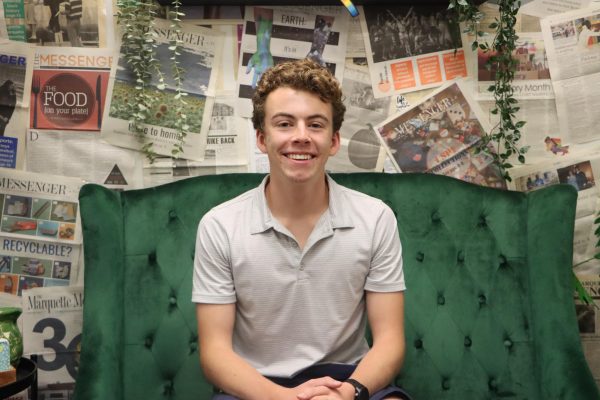Noah Sutherland, sophomore, had many questions about classes for his junior and senior year.
He said he used MHS’ first-ever Academic Fair to look at his options and make more informed course selections.
The fair took place during Mod 2 of Ac Lab on Thursday, Jan. 18, and allowed students to travel throughout the building to ask teachers about classes.
“I’m looking at the differences between a couple of language arts classes, and having access to the resources there has been super useful when looking at AP Lit versus AP Lang,” Sutherland said.
Associate Principal Dr. Michael Wegener coordinated the fair with the department chairs.
Dr. Wegener said the event was challenging to produce due to its lack of history and the numerous courses offered.
“We pulled the entire master schedule,” Dr. Wegener said. “For every course that we offer at MHS, there was a teacher representing.”
The academic fair gives students a better understanding of their options and pathways, Dr. Wegener said. This is especially helpful since the new Academic Plan on Infinite Campus means freshmen and sophomores will be selecting courses beyond their next year in high school.
“I hope students can make better, educated decisions about the courses they want to take,” Dr. Wegener said. “That will result in fewer schedule changes and make students aware of what programs are available to them later on in high school.”
Noelle Kowalski, freshman, said during the Academic Fair, she considered how to set up her classes to prepare for college. Based on what she learned, Kowalski said she plans to take Honors Algebra 2 next year so she can then take Precalculus and Statistics in her junior and senior years, respectively.
“I like how the teachers are open to talk about classes,” Kowalski said.
Ellen Klasing, Calculus BC teacher, said roughly 50 students visited Darcy Hachmeister, Calculus AB teacher, and her in Room 317.
Hachmeister said the main inquiry students had during the fair was the difference between Calculus AB and Calculus BC. Calculus AB covers Calculus 1, and Calculus BC covers Calculus 1 and 2.
“In terms of what the kids have gained from this, they [now know] the differences between the two courses and the expectations,” Hachmeister said.
She said the academic fair is about how a student utilizes it.
“I think some students are going to get 110 percent out of it,” Hachmeister said. “I think some students are going to get negative 30 percent out of it because they’re not going to go anywhere and they’re just roaming.”
Both Klasing and Hachmeister said the fair can be very beneficial but may need some “tweaks” for next year to create accountability and encourage students to make use of the time.





